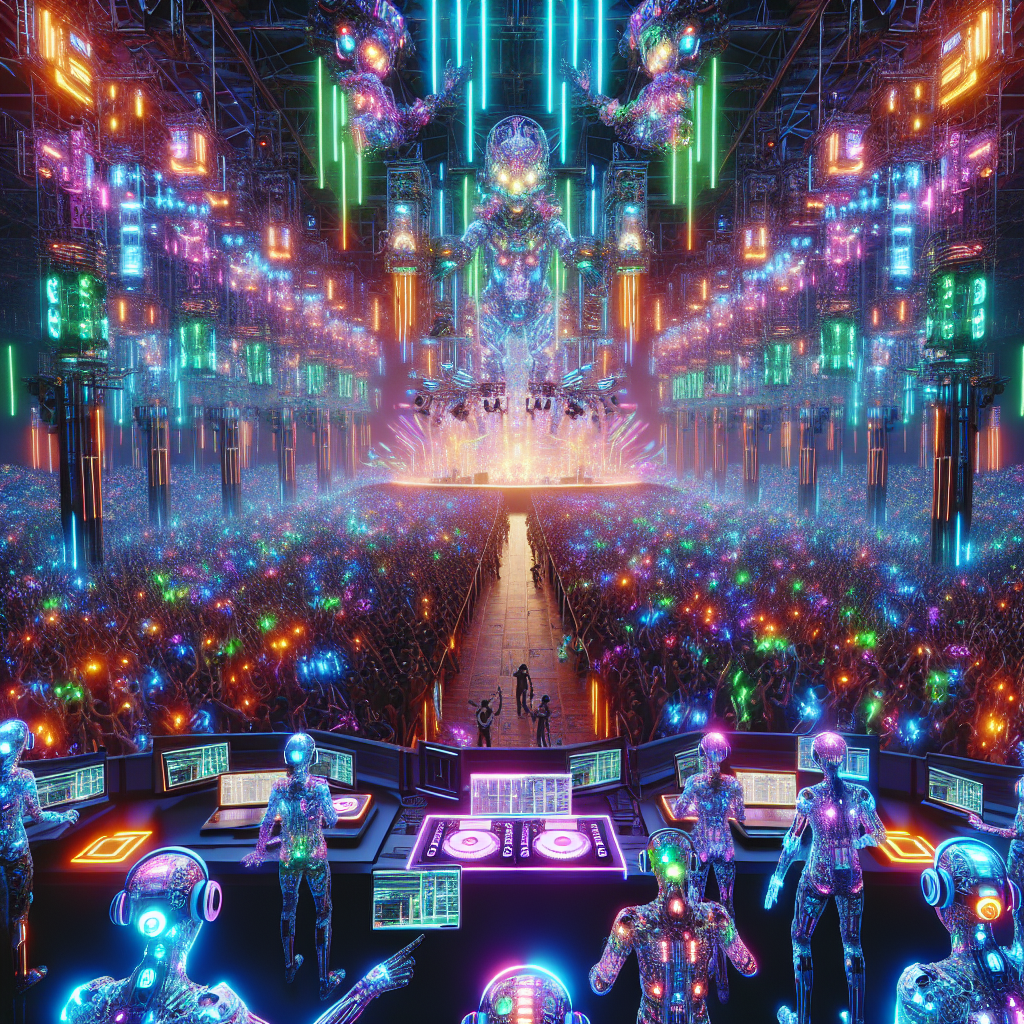
Potential Future Trends in the Music Industry
The music industry has constantly evolved over the years with the advent of new technologies and changing consumer preferences. As we look ahead, several key themes emerge that have the potential to shape the future of the industry. In this article, we will analyze these themes and provide our unique predictions and recommendations for the industry.
1. Digital Streaming Dominance
One of the most significant trends in recent years has been the rise of digital streaming platforms. Services like Spotify, Apple Music, and Tidal have revolutionized how people consume music. This trend is likely to continue, with digital streaming expected to dominate the industry in the future.
Prediction: As streaming becomes more prevalent, we anticipate a shift in revenue models. Artists and record labels may need to adapt and find alternative channels to generate income, such as brand partnerships, live performances, or merchandise sales.
2. Artificial Intelligence (AI) and Music Creation
Advancements in AI and machine learning have opened new possibilities for music creation. AI algorithms can now compose original pieces, mimic various music styles, or assist musicians in creating complex compositions. This technology has the potential to revolutionize how music is produced and consumed.
Prediction: In the future, we might see AI being extensively used by artists, producers, and composers to enhance their creative process and streamline production. However, while AI can assist in generating music, it is unlikely to replace the emotional depth and human touch that comes from genuine human expression.
3. Virtual Reality (VR) Concerts and Experiences
The COVID-19 pandemic has accelerated the adoption of virtual reality (VR) technology across various industries. In the music industry, VR concerts and experiences have gained significant traction as a means to provide immersive and engaging performances to fans worldwide.
Prediction: VR concerts will continue to grow in popularity, even once traditional live events return. Artists and event organizers will explore new ways to create unique experiences through VR, allowing fans to interact with their favorite musicians and attend concerts from the comfort of their own homes. This also opens up opportunities for artists to reach global audiences without physical limitations.
4. Personalized Music Recommendations and Curation
With the vast amount of music available online, personalized recommendations and curation have become crucial for consumers to discover new artists and songs. Machine learning algorithms analyze user preferences and behavior to provide tailored music suggestions.
Prediction: Personalized music recommendations will become even more refined and accurate in the future. As AI continues to improve, it will better understand individual tastes and adapt recommendations based on context, emotions, and location. This enhances the music discovery process and ensures listeners find content perfectly suited to their preferences.
Recommendations:
- Embrace New Technologies: Artists, record labels, and industry professionals should keep an open mind and embrace new technologies that enhance the music creation, distribution, and consumption processes.
- Collaborate with AI: Musicians should explore the possibilities of using AI as a tool for experimentation, composition, and production while maintaining their unique artistic vision.
- Diversify Revenue Streams: To adapt to changing revenue models, artists should consider diversifying their income sources beyond streaming platforms, such as through live performances, merchandise sales, and brand partnerships.
- Invest in VR Experiences: Artists and event organizers can invest in creating immersive VR experiences to engage fans globally and provide unique concert experiences.
- Understand Data Analytics: Musicians should familiarize themselves with data analytics tools to gain insights into their audience, enabling them to tailor their music and marketing strategies effectively.
As the music industry evolves, it is crucial for artists, labels, and industry professionals to adapt to these emerging trends. By embracing technology, diversifying revenue streams, and creating innovative experiences, they can thrive in a changing landscape. The future holds exciting possibilities for the music industry, and those who are prepared will lead the way.
References:
1. Mulligan, M. (2020). The Future of Music: 2020 edition. Music Industry Blog. Retrieved from https://musicindustryblog.wordpress.com/2020/01/22/the-future-of-music-2020-edition.
2. Bremner, M. (2019). The impact of artificial intelligence on the music industry. Gartner. Retrieved from https://www.gartner.com/smarterwithgartner/the-impact-of-artificial-intelligence-on-the-music-industry.
3. Helman, P. (2021). The euphoria of virtual reality concerts. Forbes. Retrieved from https://www.forbes.com/sites/pamelafernandez/2021/02/03/the-euphoria-of-virtual-reality-concerts/?sh=4c3e56ba1d54.
4. Yücel, C. (2019). How AI is shaping the music industry: A wave in the sea of possibilities. Medium. Retrieved from https://medium.com/crowdbotics/how-ai-is-shaping-the-music-industry-f0c0b1619642.
5. Roy, D. (2020). Data analytics for artists: How to understand and use your audience insights. CD Baby Blog. Retrieved from https://blog.cdbaby.com/musician-tips/data-analytics-for-artists.
